Creatine is one of the most researched and trusted supplements in the fitness world — but the question always comes up:
“Does creatine cause water retention?”
As a fitness trainer who’s personally used creatine and coached dozens of clients through it, I totally get the concern. You want strength and performance — not bloat.
Let me break it down for you, coach-to-client style.
Table of contents
- Quick Answer
- Why Water Retention Happens with Creatine
- Is It Subcutaneous or Intramuscular Water? (Big Difference!)
- How Long Does Creatine Water Retention Last?
- Creatine Bloating vs. Water Retention: Know the Difference
- How to Reduce Water Retention While Taking Creatine
- My Experience Coaching Clients with Creatine
- Final Verdict
Quick Answer

Yes — but not the kind you’re probably thinking about.
Creatine monohydrate does cause water retention, but the water goes inside your muscle cells, not under your skin. That means you’ll look fuller, more pumped, and stronger, not puffy or bloated.
When I first started using creatine over 8 years ago, I gained about 1.5 kg in the first week — and no, it wasn’t fat. My muscles looked denser, my pumps were stronger, and I felt more explosive in every workout.
And guess what? I never looked bloated.
To understand how this works, check out:
👉 Creatine Monohydrate Strength Benefits
Why Water Retention Happens with Creatine
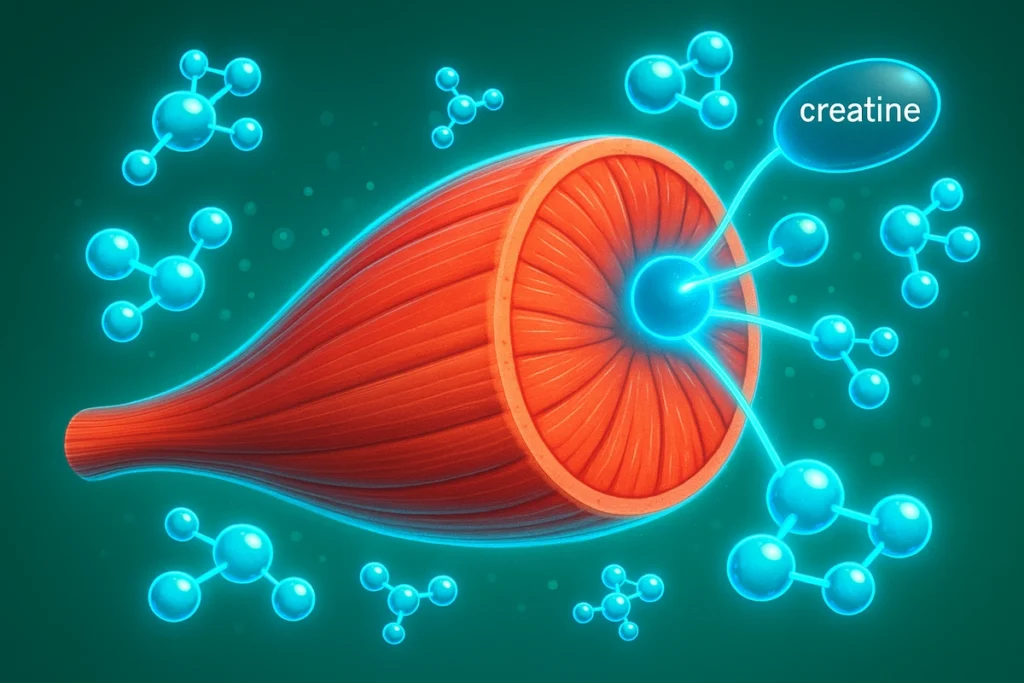
Here’s the science behind it — simplified.
Creatine helps your muscles produce more ATP (the energy you use for heavy lifting and intense training). To do that, it pulls water into your muscle cells.
This process increases intracellular hydration, which supports better performance and recovery.
And this water retention? It’s a good thing. It’s part of why creatine is so effective.
That’s also why stacking it smartly can amplify results. For example, read:
👉 Creatine + Beta-Alanine Stack: A Powerful Combo
Is It Subcutaneous or Intramuscular Water? (Big Difference!)
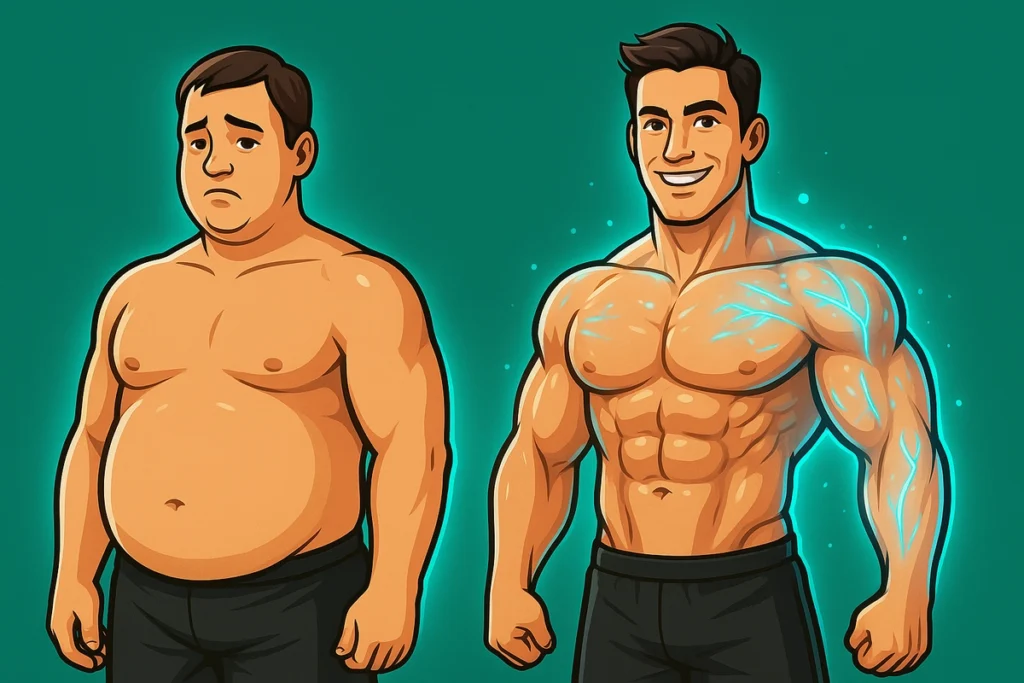
Let’s clear up the biggest myth: Creatine doesn’t make you “puffy” or add water under your skin. That’s subcutaneous water, and it’s not what’s happening here.
Creatine pulls water into your muscles — that’s intramuscular water. It actually makes you look leaner and more muscular by giving your muscles a fuller appearance.
One of my female clients, Jessica from Canada, initially stopped creatine because she read online it would make her look soft.
A month later, she hit a plateau in strength and came back to me frustrated. I convinced her to give it another try — this time skipping the loading phase and focusing on hydration.
Two weeks later she texted:
I actually look better now — like tighter, not puffier. Glad I trusted you!
How Long Does Creatine Water Retention Last?
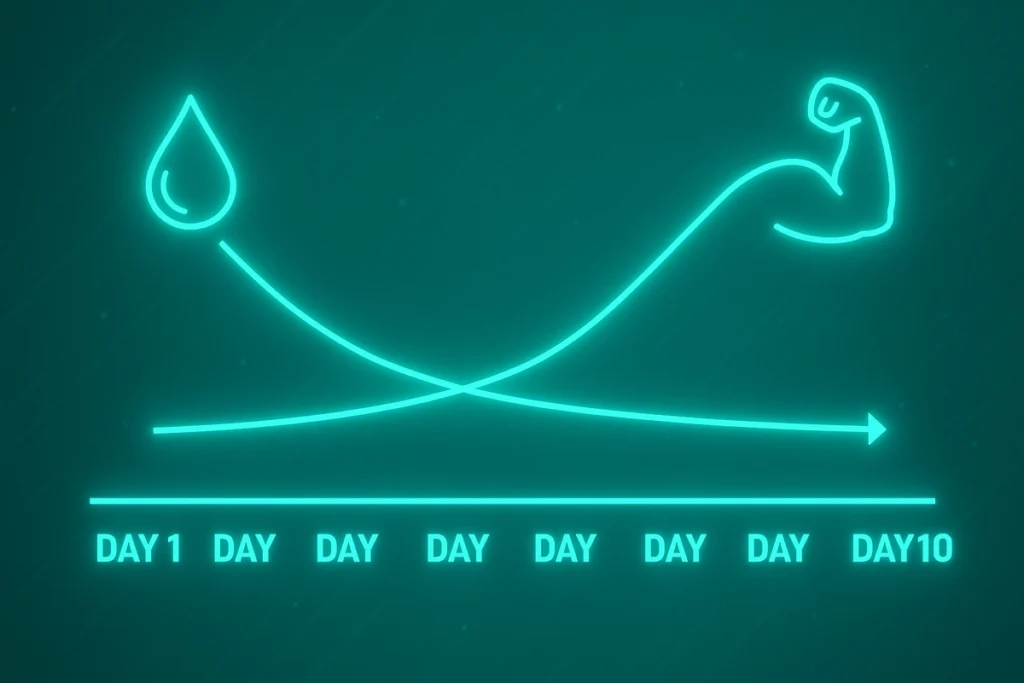
If you’re doing a loading phase (20g per day), you might notice a slight increase in water weight during the first 5–7 days.
But once your body adapts and you drop to a maintenance dose (3–5g/day), things level out quickly.
Most of my clients feel completely normal after the first week — no visible bloat, no digestive discomfort.
Some even skip the loading altogether. It’s slower, but smoother.
Want to know how long you should load? Dive deeper here:
👉 Creatine Loading: 5 or 7 Days?
👉 Creatine Loading Phase Explained
Creatine Bloating vs. Water Retention: Know the Difference
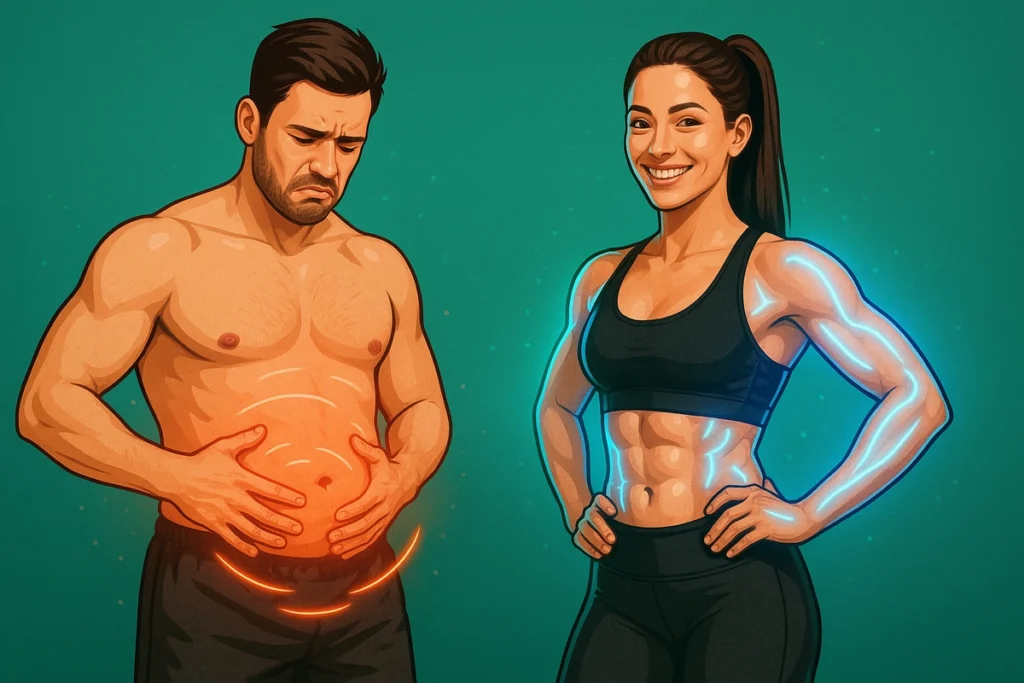
These two get confused all the time — so let’s make it clear.
- Water retention: Mostly intramuscular, improves muscle size and function.
- Bloating: Digestive issue — gassy, uncomfortable, visible puffiness.
A client of mine, Lucas from Germany, thought he was getting fat after starting creatine.
Turned out he was taking it with a salty, heavy meal and wasn’t drinking enough water.
We switched to micronized creatine, taken pre-workout with plenty of water — bloating disappeared.
Bottom line: if you’re feeling bloated, it’s probably not the creatine — it’s how you’re using it.
How to Reduce Water Retention While Taking Creatine
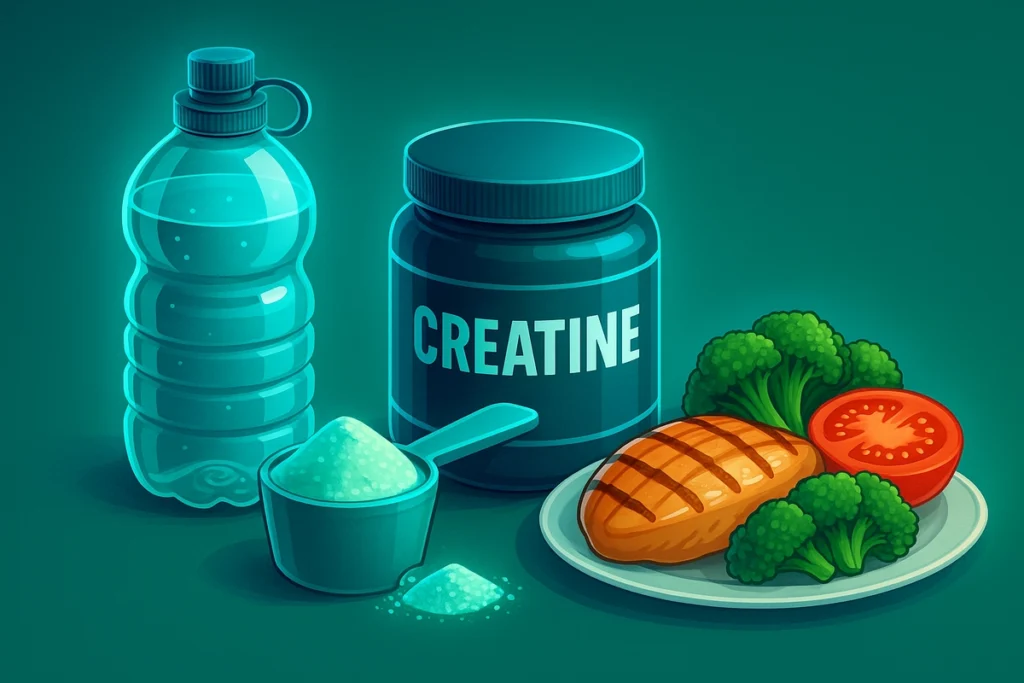
Want to maximize the benefits without any unnecessary side effects? Here’s what I tell my clients:
- Drink more water — sounds counterintuitive, but it helps regulate water balance.
- Use micronized creatine monohydrate — easier on the stomach.
- Avoid high sodium foods — especially during loading.
- Skip the loading phase — slower build-up, but no bloating drama.
I’ve coached dozens of clients through creatine protocols, and these four tips solve 90% of issues people face.
For best timing tips, check:
👉 Best Time to Take Creatine for Muscle Growth
👉 Creatine Before or After Workout?
My Experience Coaching Clients with Creatine

Over the last 6+ years, I’ve coached men and women at all levels — from beginners to amateur competitors. Creatine has been one of the most consistent performers across the board.
One thing I’ve noticed?
Clients with low hydration and poor eating habits are the ones who complain about “bloat.” But once we fix the basics — clean up the diet, time the creatine right, and boost water intake — the complaints disappear.
Another thing? Most of them actually like how they look on creatine.
Even during cuts, I keep clients on creatine. Why? It preserves strength and muscle volume when calories are low.
Personally, I take it year-round — bulk, cut, or maintenance.
You can read more about workout performance during the loading phase here:
👉 Creatine Loading Phase & Workout Benefits
And for a comparison with beta-alanine:
👉 Beta-Alanine vs Creatine for Strength & Power
Final Verdict

Should You Be Worried About Water Retention? Not at all.
Creatine monohydrate does cause water retention — but it’s inside your muscles, right where you want it.
It’s not bloat. It’s not fat. It’s not going to ruin your definition.
Instead, it’s going to help you lift heavier, recover faster, and look fuller — all for the price of a cup of coffee a day.
So if you’re still on the fence, here’s what I tell every skeptical client:
Creatine pulls water into your muscles, not under your skin — so instead of looking bloated, you’ll actually look stronger and more pumped.
Still concerned about health? Here’s the science:
👉 Is Creatine Safe for Your Kidneys?

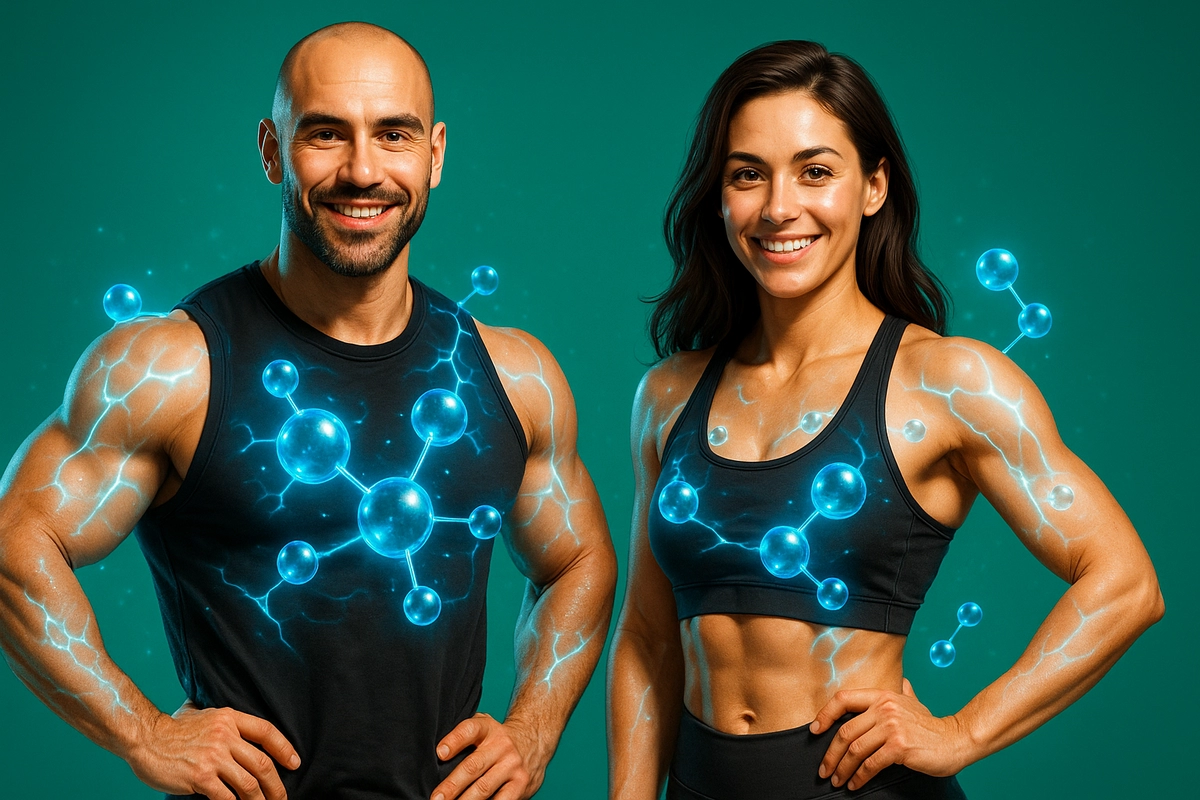

Leave a Reply